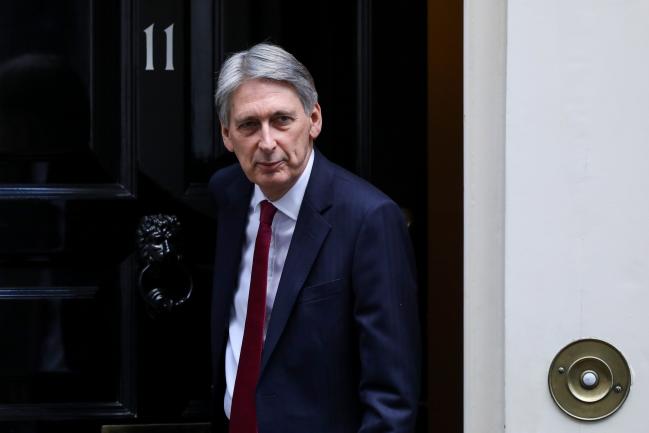(Bloomberg) -- U.K. Chancellor of the Exchequer Philip Hammond put bank supervisors in a tough spot by saying they could help smooth the Brexit process while politicians fight over a transition period.
Financial firms want to know now whether they’ll have as long as two extra years to plan their moves from Britain to the continent, and U.K. Brexit Minister Robin Walker said on Monday that the two sides were “very close” to a political deal on a transition. But as Hammond said, “that alone won’t be quite enough,” because the transition won’t be guaranteed until the divorce agreement has been ratified in Brussels and London.
In the meantime, Hammond said, regulators can do “a great deal” to “provide reassurance to businesses.” Yet it’s unclear what sort of assurances supervisors such as the Bank of England and the European Central Bank could give regarding a transition before it’s legally binding.
Hammond’s appeal to supervisors “seems somewhat reckless to me,” said Neil Robson, a regulatory partner at Katten Muchin Rosenman U.K. in London. “Firms providing services cross-border need certainty, not comforts that could be withdrawn if the European Commission doesn’t like the way that the discussions progress over coming months.”
Divorce Process
Like Hammond, EU chief Brexit negotiator Michel Barnier has said certainty about the transition won’t come until the end of the divorce process, which will be “probably early next year.”
Sam Woods, head of the BOE’s Prudential (LON:PRU) Regulation Authority, has said the question will be how far firms feel they can rely on a political transition agreement. And the BOE will have to decide what it can say. “That will be significant,” he told lawmakers in January.
Ed Sibley, deputy governor for prudential regulation at the Central Bank of Ireland, said in an interview that supervisors have to plan for the worst and make sure banks will be ready if the Brexit talks, including the transition, fall apart.
“The nature of European negotiations is such that nothing is agreed until everything is agreed,” he said. “We are going to be dealing with uncertainty, even if there is a broad agreement on points of principle around transition, until an agreement is ratified.”
Without legal clarity, supervisors probably won’t be able to offer firm advice to banks, said Richard Reid, honorary senior research fellow in finance and regulation at the University of Dundee.
“I suspect any regulator would be extremely circumspect in giving any concrete advice during a transition phase precisely because of the uncertain political setting,” he said. “By the same token, I would doubt if many firms would be likely to take significant business decisions during the transition phase unless the political situation became much more stable and predictable.”
